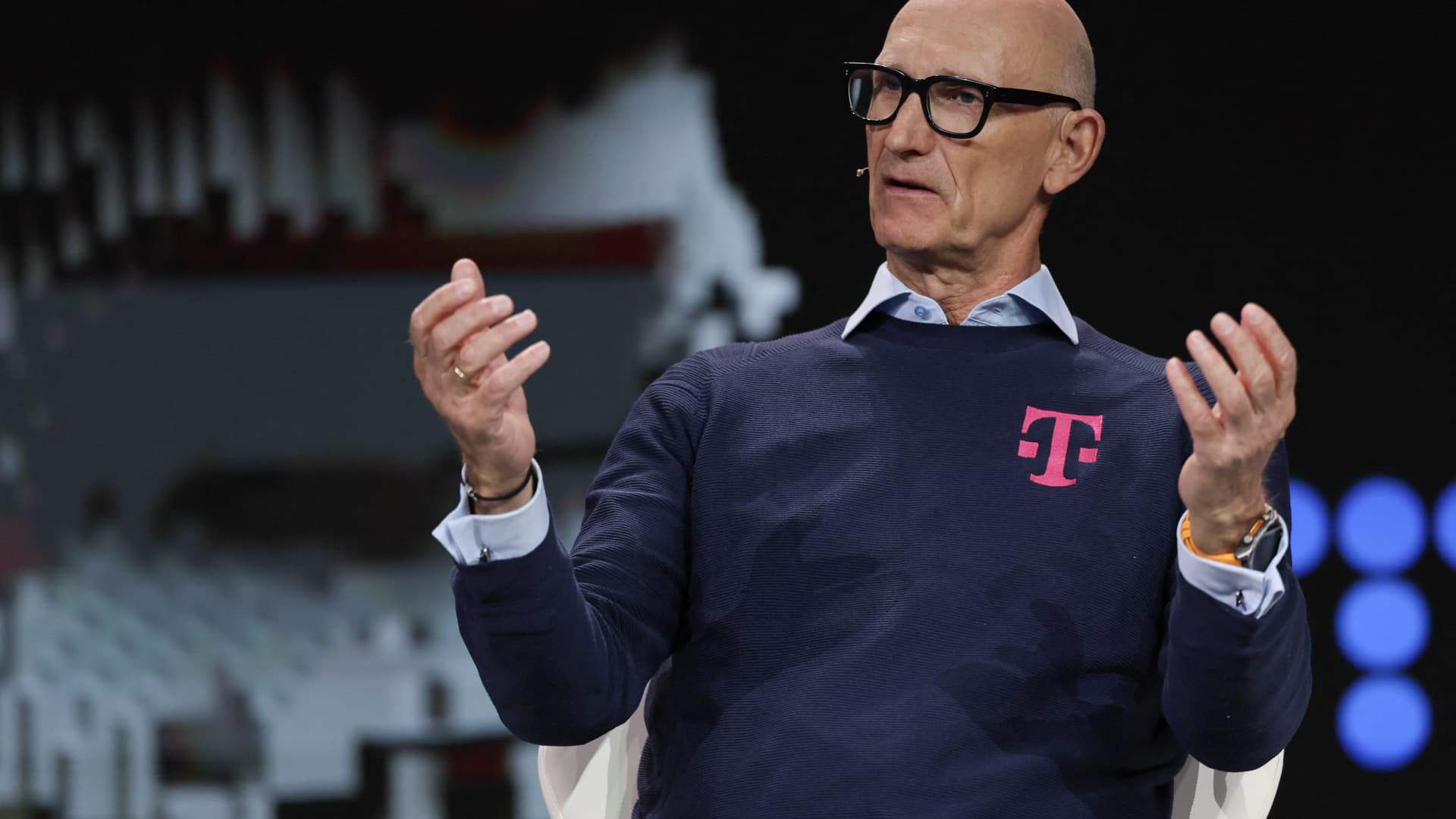Deutsche Telekom CEO Champions DOGE: A Call for European Deregulation
In a groundbreaking statement that has sent ripples through the corridors of corporate and governmental power, the CEO of Deutsche Telekom has voiced strong support for Dogecoin (DOGE) as a catalyst for deregulation across Europe. This bold proclamation raises essential questions about the future of cryptocurrency, its transformative potential, and how it could reshape the telecommunications landscape in Europe.
The Context of DOGE in Today’s Cryptocurrency Landscape
Dogecoin, originally created as a meme in 2013, has evolved into a significant player in the cryptocurrency arena. With its dedicated community and increasing acceptance by businesses, DOGE has proven itself more than just a novelty. Its low transaction fees and fast processing times make it an attractive option for both consumers and businesses alike.
As cryptocurrency continues to gain traction, regulatory challenges persist. Many European countries have adopted strict regulations regarding cryptocurrency transactions, often stifling innovation and preventing the market from reaching its full potential. The CEO of Deutsche Telekom argues that embracing DOGE could lead to a more flexible regulatory environment that fosters growth and innovation.
Why DOGE? The CEO’s Vision
The CEO’s passionate advocacy for DOGE is rooted in several key beliefs:
- Accessibility: DOGE is inherently designed to be easy to use, making it accessible to a wider audience. This accessibility could encourage more people to participate in the digital economy.
- Decentralization: By aligning with DOGE, Deutsche Telekom promotes a decentralized financial system, reducing reliance on traditional banking structures that often impose high fees and slow transaction times.
- Innovation Catalyst: The use of DOGE in telecommunications could stimulate technological advancements and encourage other industries to explore similar integrations.
In the CEO’s view, embracing DOGE could inspire a new regulatory framework in Europe—one that is more adaptable to the fast-paced nature of technology and the evolving needs of businesses and consumers.
The Need for Deregulation in Europe
The European telecommunications landscape has long been characterized by stringent regulations aimed at consumer protection and market stability. However, these regulations can also hinder competition and innovation. The CEO argues that a shift toward deregulation, particularly in the context of cryptocurrency, could yield significant benefits:
- Enhanced Competition: By reducing regulatory barriers, smaller players and startups can more easily enter the market, fostering competition that ultimately benefits consumers.
- Fostering Innovation: A less regulated environment encourages companies to innovate without the fear of punitive measures, leading to the development of groundbreaking technologies and services.
- Consumer Empowerment: With more choices and lower costs, consumers can benefit from a more dynamic telecommunications market.
The Potential Impact of DOGE on Telecommunications
Integrating DOGE into Deutsche Telekom’s operations could reshape how telecommunications companies interact with consumers and each other. Here are a few potential impacts:
- Transaction Efficiency: Using DOGE for transactions could streamline billing and payment processes, reducing overhead costs and improving customer satisfaction.
- New Business Models: As companies adopt DOGE, new revenue streams could emerge. For example, microtransactions for digital services could become commonplace.
- International Transactions: DOGE’s borderless nature could simplify international transactions, making it easier for telecommunications companies to operate across borders.
Challenges Ahead
While the CEO’s vision is promising, several challenges remain:
- Regulatory Hurdles: Even with advocacy for deregulation, entrenched regulatory frameworks could pose significant barriers to adopting DOGE.
- Market Volatility: The inherent volatility of cryptocurrencies like DOGE can deter businesses from fully integrating these assets into their operations.
- Public Perception: Many still view DOGE as a speculative investment rather than a legitimate currency, which could hinder widespread adoption.
Conclusion: A Vision for the Future
The CEO of Deutsche Telekom’s call for embracing DOGE as a catalyst for deregulation in Europe presents an exciting opportunity for the telecommunications industry and the broader economy. By advocating for a more flexible regulatory environment, there is potential not only for innovation and competition but also for a fundamental shift in how consumers engage with digital currencies.
As Europe grapples with the implications of cryptocurrency, the move toward deregulation could unlock new avenues for growth and development. The future of telecommunications—and indeed many industries—may very well hinge on how well they adapt to the changing landscape shaped by cryptocurrencies like DOGE.
In the coming years, it will be vital for stakeholders across Europe to engage in open dialogues about regulation, innovation, and the role of cryptocurrencies. The road ahead may be challenging, but with leaders like the CEO of Deutsche Telekom championing the cause, there is hope for a brighter, more decentralized future.
See more Future Tech Daily

